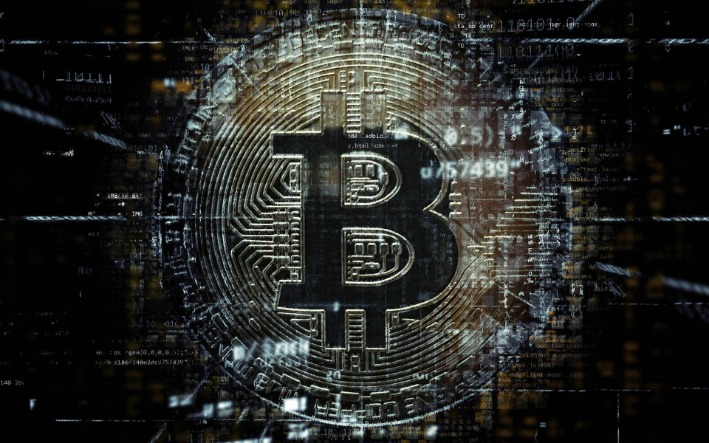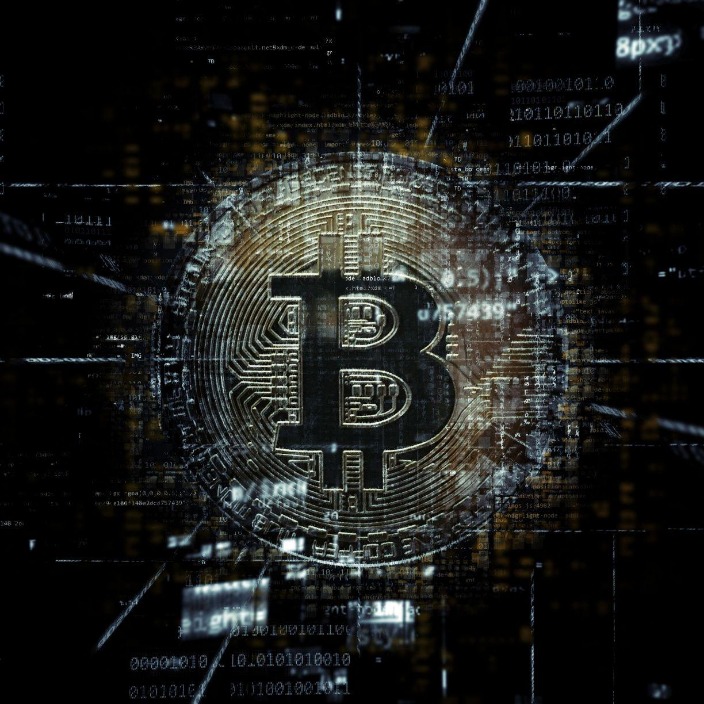Understanding Bitcoin and Its Role in the Dark Web
Understanding Bitcoin and its role in the dark web is essential to comprehending the complexities of digital underground economies. As a decentralized digital currency, Bitcoin offers privacy and anonymity, making it a popular choice for activities that operate outside the mainstream financial system. The Bitcoin dark web has become a hub for various transactions, ranging from illicit goods and services to more discreet exchanges. Exploring this hidden corner of the internet reveals how cryptocurrencies facilitate both illegal and legal activities, often behind layers of encryption and anonymity. For those interested in deeper insights, there are platforms and marketplaces that use Bitcoin to support their operations, like the one available at this link: Bitcoin dark web.
What Is Bitcoin?
Bitcoin is a decentralized digital currency that allows for peer-to-peer transactions without the need for a central authority or intermediary. It operates on a technology called blockchain, which is a distributed ledger recording all transactions publicly and permanently. This transparency, combined with cryptographic security, makes Bitcoin a popular choice for users seeking privacy and autonomy in their financial dealings.
One of the notable features of Bitcoin is its potential for anonymous transactions, which has contributed to its use on the dark web. The dark web is a part of the internet that is not indexed by standard search engines and requires specific software to access. While Bitcoin transactions are not completely anonymous, they are considered pseudonymous, meaning transactions are tied to digital addresses rather than personal identities. This characteristic has made Bitcoin a preferred currency for illicit activities on the dark web, where users can buy and sell goods and services with a degree of privacy.
However, it is important to recognize that Bitcoin’s role in the dark web is just one aspect of its broader use case. Many individuals and businesses rely on it for legitimate purposes such as international transfers, investment, and financial privacy. As Bitcoin continues to evolve, it remains a significant digital asset that reflects both the possibilities and the challenges of decentralized cryptocurrencies in today’s digital landscape.
Why Bitcoin Is Popular on the Dark Web
Bitcoin has become a prominent digital currency known for its decentralized nature and ease of transfer, which makes it particularly appealing on the dark web. Its anonymity features, while not entirely foolproof, provide a level of privacy that many users seek when engaging in activities outside mainstream financial systems. This combination of features has led to its widespread adoption for transactions in various black market activities.
The dark web offers a hidden environment where illegal trade, illicit services, and confidential communications flourish. In such a space, traditional banking methods are often unsuitable because of their traceability. Bitcoin addresses this challenge by allowing users to transfer funds without revealing their identities, making it a preferred choice for those looking to maintain privacy and security. The ease of use, minimal transaction fees, and widespread acceptance further contribute to Bitcoin’s popularity on the dark web.
While Bitcoin was initially designed as a transparent peer-to-peer digital cash system, its pseudonymous nature has inadvertently made it a tool for illicit trade. Users can generate multiple addresses, making it difficult to track overall activity or identify individuals directly. This functionality attracts cybercriminals, illegal marketplaces, and other entities operating in the shadows of the internet, reinforcing Bitcoin’s role as a preferred currency in such environments.
Understanding Bitcoin’s role in the dark web is crucial for grasping the complexities of online privacy and security. Its characteristics make it both a revolutionary financial technology and a tool exploited for unlawful purposes. As Bitcoin continues to evolve, discussions around regulation, security, and transaction transparency will remain vital to balancing innovation with law enforcement efforts.

Advantages of Using Bitcoin for Dark Web Transactions
Bitcoin, the pioneering cryptocurrency, has gained significant recognition for its decentralized and pseudonymous nature, making it a preferred form of digital currency in various online activities. Its role on the dark web is particularly notable, where it facilitates anonymous transactions that would be difficult to conduct through traditional banking systems. Understanding how bitcoin functions within this hidden part of the internet provides insight into its advantages and implications for users engaged in dark web activities.
Bitcoin operates on a distributed ledger known as the blockchain, which records all transactions publicly but preserves user privacy through cryptographic addresses. This feature enables users to maintain a degree of anonymity while transacting. On the dark web, bitcoin’s decentralized nature eliminates the need for intermediaries like banks or payment processors, reducing the risk of transactional censorship or seizure. Moreover, its global accessibility allows individuals in various countries to participate in transactions without geographic restrictions, making it a versatile tool for dark web commerce.
- Enhanced Privacy and Pseudonymity: Bitcoin transactions are linked to cryptographic addresses rather than personal identities. While transactions are publicly recorded, the absence of personal information offers a layer of privacy that appeals to dark web participants seeking anonymity.
- Decentralization and Censorship Resistance: Operating without a central authority, bitcoin allows users to exchange value freely without interference from governments or financial institutions, which is particularly advantageous in jurisdictions with restrictive policies.
- Ease of Use and Accessibility: Bitcoin can be easily acquired and sent using various digital wallets, enabling quick and straightforward transactions across borders, vital for the fast-paced nature of dark web exchanges.
- Lower Transaction Costs: Compared to traditional financial methods, bitcoin transactions often have lower fees, especially for international transfers, making it a cost-effective option for small or frequent payments.
In summary, bitcoin’s attributes make it a fundamental digital currency within the dark web ecosystem. Its combination of privacy features, decentralization, and ease of access provides significant advantages for users engaged in unauthorized or anonymous online transactions. Recognizing these benefits helps in understanding the ongoing role of bitcoin in the shadowy corners of the internet and its impact on digital privacy and security.
Bitcoin Transactions on the Dark Web
The Bitcoin dark web is a hidden part of the internet where transactions often occur outside the scope of traditional financial systems. This anonymous environment relies heavily on Bitcoin transactions to facilitate the exchange of goods and services, offering privacy and pseudonymity to users. Engaging in bitcoin dark web activities involves navigating encrypted networks and specialized marketplaces, making it a unique facet of the broader cryptocurrency ecosystem. For those interested in exploring this realm, there are various marketplaces and resources, such as this trusted marketplace, that provide insight into how bitcoin transactions are conducted within this obscure universe.
How Bitcoin Facilitates Anonymity
Bitcoin transactions on the dark web are often associated with maintaining a high level of anonymity and privacy. Unlike traditional financial systems, where transactions are easily traceable through banking records, Bitcoin offers a decentralized framework that can facilitate discreet exchanges. This digital currency enables users to participate in financial activities without revealing personal identities, making it appealing to individuals seeking privacy in their transactions.
One of the key advantages of using Bitcoin on the dark web is its pseudonymous nature. Transactions are linked to digital addresses rather than personal information, providing a layer of concealment. While all transactions are recorded on the blockchain, the public ledger does not directly link these addresses to real-world identities. Sophisticated methods, however, can sometimes associate addresses with individuals, but the overall system still offers a significant degree of anonymity compared to traditional methods.
Bitcoin’s ease of transfer, widespread acceptance, and the existence of privacy-enhancing techniques such as coin mixers contribute to its popularity for dark web activities. Coin mixers blend multiple transactions together to obscure origins, making it more difficult to trace the flow of funds. This further enhances the anonymity of users engaging in transactions through the dark web.
Although Bitcoin facilitates pseudonymity, users should be aware that it is not entirely untraceable. Law enforcement agencies have developed tools and methods to track transactions, especially when combined with other investigative techniques. Nevertheless, for many users on the dark web, Bitcoin remains a crucial tool for conducting transactions with a higher level of privacy than traditional currencies.
Process of Buying and Selling with Bitcoin
Bitcoin transactions on the dark web play a crucial role in facilitating anonymous and decentralized exchanges. Due to its pseudonymous nature, Bitcoin offers a level of privacy that appeals to users engaging in activities beyond conventional markets. On the dark web, buyers and sellers utilize Bitcoin to conduct transactions securely without revealing personal identities, making it a preferred currency in these environments.
The process of buying and selling with Bitcoin on the dark web typically involves several key steps. First, participants acquire Bitcoin through exchanges that may offer enhanced privacy options or via peer-to-peer platforms. Once they possess Bitcoin, buyers browse dark web marketplaces where listings are often hidden behind encrypted sites and require specific access protocols. Sellers, on the other hand, list items or services and await buyer inquiries.
To initiate a purchase, the buyer communicates with the seller and agrees on the terms. Payment is then made through a Bitcoin wallet by transferring the agreed amount to a designated address provided by the seller. This transaction is recorded on the blockchain, serving as a transparent ledger while maintaining user anonymity. The seller confirms receipt of funds and proceeds with the delivery of goods or services.
Throughout the process, caution is essential to avoid scams, which are prevalent in the dark web marketplace. Users often rely on escrow services, where a third-party holds the Bitcoin until the buyer confirms receipt of the product, ensuring mutual security. This process highlights how Bitcoin transactions can be both efficient and discreet, yet they require vigilance to mitigate risks inherent in dark web activities.
Mining and Earning Bitcoin for Dark Web Use
The dark web has become a notorious hub for anonymous activities, with Bitcoin playing a central role in facilitating transactions due to its pseudonymous nature. Many users leverage Bitcoin transactions on the dark web to buy and sell a variety of goods and services while maintaining privacy and security. These transactions are often conducted through encrypted networks, making it challenging to trace the flow of funds back to individuals.
Mining Bitcoin on the dark web is a practice some entities engage in to generate new coins, often using compromised devices or botnets to avoid detection. This illicit mining can be hidden within larger operations, making it difficult for authorities to identify and shut down illegal mining farms. Earning Bitcoin for dark web use typically involves offering services or products that require high levels of anonymity, often paid for via untraceable transactions.
Participants operating in the Bitcoin dark web ecosystem take advantage of the cryptocurrency’s features to preserve privacy and evade traditional financial regulations. However, this use also attracts scrutiny from law enforcement agencies aiming to dismantle illegal marketplaces and prevent illicit activities. Despite these efforts, the combination of Bitcoin’s pseudonymous nature and the dark web’s encrypted environment continues to facilitate anonymous transactions and earnings.
Security and Privacy Considerations
Security and privacy considerations are paramount when exploring the realm of the bitcoin dark web. Due to its anonymous nature, users must be vigilant to protect their identities and financial information from malicious actors and potential legal risks. Ensuring robust security measures and understanding privacy protocols can significantly reduce vulnerabilities when engaging in activities associated with this hidden part of the internet. For those interested in safer navigation, exploring resources like secure access points is highly recommended, such as this secure access service.
Securing Your Bitcoin Wallet
Securing your Bitcoin wallet is crucial when engaging with the dark web, where anonymity and privacy are paramount. Protecting your assets from theft, hacking, and unauthorized access involves implementing comprehensive security measures tailored to the unique risks of this environment. Since the dark web often involves illegal transactions and heightened security concerns, maintaining the integrity and confidentiality of your Bitcoin wallet is essential for ensuring your safety and privacy.
One of the most effective ways to secure your Bitcoin wallet is by using hardware wallets, which store your private keys offline, making them less susceptible to hacking attempts. Additionally, employing strong, unique passwords combined with two-factor authentication adds an extra layer of protection. Regularly updating your wallet software and ensuring your device’s security patches are current can prevent vulnerabilities that malicious actors might exploit.
Privacy considerations are equally important when dealing with the Bitcoin dark web. Using privacy-focused tools such as VPNs and Tor networks can help obscure your location and identity, reducing the risk of surveillance or tracing. It is also advisable to avoid reusing addresses to prevent linking transactions back to you. Cryptocurrency mixers or tumblers can further enhance anonymity by obfuscating the trail of transactions, although these should be used responsibly and legally.
Ultimately, securing your Bitcoin wallet in the dark web context requires a combination of technological safeguards and vigilant operational practices. By prioritizing security and privacy, users can better protect their assets and maintain their anonymity in this clandestine internet space. Remember, the key is to stay informed about the latest security protocols and to exercise caution with every transaction.
Best Practices for Dark Web Bitcoin Transactions
Engaging in Bitcoin transactions on the dark web requires careful attention to security and privacy considerations to protect oneself from potential threats. Due to the anonymous nature of the dark web, users must adopt best practices to minimize risks and ensure their activities remain discreet. Implementing robust security measures is essential to prevent hacking, scams, or exposure of sensitive information when dealing with Bitcoin in these environments.

One of the most critical privacy considerations is to use secure and privacy-focused tools such as VPNs or Tor networks. These tools help obscure your IP address and online activities, adding layers of anonymity necessary for dark web transactions. When conducting Bitcoin transactions, it is advisable to use new, unused wallets for each transaction to prevent linking multiple activities to a single identity, thereby safeguarding privacy.
Ensuring the security of your Bitcoin holdings involves using reputable wallets with strong encryption features and enabling two-factor authentication where possible. It is also prudent to avoid storing large amounts of Bitcoin on exchanges or online wallets, as they are common targets for cyberattacks. Instead, consider storing your funds in cold wallets that are offline and less vulnerable to hacking attempts.
Practicing cautious transaction behavior is another best practice. Always verify the legitimacy of counterparties and avoid sharing unnecessary personal information that could be used for identity tracing. When making transactions on the Bitcoin dark web, it is important to avoid patterns that could link your activities back to your real identity or location.
Finally, staying informed about evolving security threats and regularly updating your software can help mitigate vulnerabilities. Continuous education about best practices for privacy and security ensures that your Bitcoin transactions within the dark web environment remain as safe and private as possible, while adhering to legal and ethical standards.
Risks Associated with Bitcoin on the Dark Web
Using Bitcoin on the dark web presents significant security and privacy considerations that users must carefully evaluate. While Bitcoin offers a decentralized and pseudonymous way to conduct transactions, these features do not guarantee complete anonymity. Transactions are recorded on a public ledger accessible to anyone, which can potentially be analyzed to uncover user identities through blockchain analysis techniques. This inherent transparency poses privacy risks, especially for individuals engaged in sensitive activities.
Additionally, the dark web environment is rife with malicious actors, increasing the risk of scams, theft, and fraud. Users may encounter sites or vendors that are not trustworthy, leading to loss of funds or exposure of personal information. The use of Bitcoin wallets on the dark web can also expose users to hacking attempts, especially if proper security measures, such as strong passwords and two-factor authentication, are not implemented.
Legal risks are another important consideration, as many activities on the dark web involve illegal goods or services. Engaging in such transactions can lead to criminal investigations, legal action, or incarceration. It is crucial to understand that while Bitcoin transactions are designed to offer privacy, they are not inherently anonymous, and law enforcement agencies continue developing methods to trace illicit activity on the blockchain.
To mitigate these risks, users should employ robust security practices, including using reputable privacy-focused wallets, utilizing additional privacy tools, and understanding the legal implications of their activities. Awareness of the vulnerabilities associated with Bitcoin on the dark web is essential for protecting personal privacy and avoiding potential legal consequences.
Popular Dark Web Markets Accepting Bitcoin
The dark web has become a complex and often misunderstood part of the internet, hosting various marketplaces that facilitate a range of transactions. Among these, numerous dark web markets accept Bitcoin as a primary currency due to its perceived anonymity and ease of use. These platforms allow users to buy and sell a variety of goods and services while maintaining a greater degree of privacy compared to traditional online transactions. Exploring the realm of the bitcoin dark web reveals both the technological innovations behind digital currency and the ongoing challenges related to security and law enforcement efforts.
Features of Notable Bitcoin-Friendly Markets
The dark web has long been associated with anonymous online activities, and many marketplaces operating within this hidden part of the internet accept Bitcoin as a primary method of payment. Known for its decentralized and pseudonymous nature, Bitcoin offers users a degree of privacy that appeals to both legitimate and illicit traders. This digital currency has become the preferred choice for transactions on popular dark web markets due to its ease of use, speed, and widespread acceptance.
Among the notable Bitcoin-friendly dark web markets, several stand out for their features and reliability. These platforms typically prioritize security features such as encrypted communications, escrow services, and reputation systems to ensure trust among users. Many of these markets operate with regular updates and community feedback mechanisms, creating a more secure environment for buyers and sellers alike. While the range of products and services varies, the core appeal remains the seamless integration of Bitcoin as a means of anonymous payment.
Features of these markets often include multi-layered security measures, including the use of encrypted messaging and detailed verification processes. Most markets also provide comprehensive guides on how to use Bitcoin securely, encouraging all users to adopt best practices for maintaining privacy and safety. Additionally, some markets offer integrated wallets and automatic conversion services, making transactions smoother for users unfamiliar with cryptocurrency management.
Overall, the popularity of Bitcoin within dark web markets underscores its significance as a tool for maintaining financial privacy in digital transactions. As these markets evolve, they continue to adapt by implementing advanced security protocols and expanding their features to cater to the growing demand for anonymous shopping experiences. This dynamic environment highlights the lasting importance of Bitcoin as a preferred currency on the dark web.
Market Reputation and Trustworthiness
The dark web has become a notable hub for various illicit activities, with Bitcoin playing a central role in facilitating anonymous transactions. Among the many marketplaces operating within this clandestine environment, some have gained notoriety for their extensive user bases and broad product offerings. These popular dark web markets accepting Bitcoin are known for their emphasis on privacy, security, and decentralization, making them attractive to users seeking anonymous purchasing options.
Market reputation and trustworthiness are critical factors when engaging with dark web marketplaces. Many of the more prominent platforms have established reputations through user reviews, escrow services, and consistent operation over time. Despite the inherent risks, such markets strive to maintain a level of reliability by implementing strict security measures and transparent transaction processes, which are often centered around Bitcoin due to its pseudonymous nature and widespread acceptance.
For many users, the appeal of the Bitcoin dark web lies in its potential for secure and anonymous transactions. However, it is essential to approach these platforms with caution, as the legal and operational risks are significant. Trustworthy markets tend to have active community feedback, robust moderation, and a track record of safeguarding buyer and seller interests. Ultimately, while the popularity of these markets persists, users must prioritize security and verify the reputation of any platform before participating in transactions involving Bitcoin.
How to Access Dark Web Markets Using Bitcoin
The dark web has become a complex and often misunderstood part of the internet, with many users curious about how cryptocurrencies like Bitcoin facilitate transactions within this hidden environment. Among the most popular dark web markets, Bitcoin remains the preferred payment method due to its relative anonymity and decentralized nature. Understanding how to access these markets using Bitcoin involves navigating a series of technical and security steps to ensure privacy and safety.
Several popular dark web markets accepting Bitcoin have gained notoriety for their extensive product listings and user-friendly interfaces. These marketplaces typically require users to connect through Tor or similar anonymizing networks to access them securely. Given the transient nature of such sites, users should always prioritize safety and legal considerations when exploring this environment.
- Install and Configure Tor Browser: To access dark web markets, users should first download the Tor Browser, which is essential for maintaining anonymity and securely connecting to hidden services.
- Ensure Secure Wallet Setup: Use a reputable Bitcoin wallet that emphasizes privacy features. Generating a new wallet and safeguarding private keys are crucial before engaging in transactions.
- Acquire Bitcoin Through Trusted Means: Purchase Bitcoin from reputable exchanges that prioritize security and privacy. Transfer only the needed amount to your anonymous wallet.
- Navigate to Market Addresses Carefully: Once connected via Tor, users can access the dark web markets, which are hosted on special .onion addresses. Always verify the market’s reputation and reviews before proceeding.
- Execute Transactions Using Bitcoin: When making purchases, specify your Bitcoin wallet address and follow the market’s instructions for secure payment. Confirm transaction details carefully to avoid scams or errors.
It is vital to note that engaging in activities on the dark web carries inherent risks, and users should be aware of the legal implications in their jurisdiction. Despite the convenience offered by Bitcoin on dark web markets, maintaining strict operational security and privacy practices is essential to protect personal information and assets.
- The Tor network began as an anonymous communications channel, and it still serves a valuable purpose in helping people communicate in environments that are hostile to free speech.
- For 15 years, Longreads has published and curated the best longform writing on the web—and we wouldn’t exist without the support of readers like you.
- Of all listings (excluding those selling drugs), 60% could potentially harm enterprises.
Legal and Ethical Implications
Understanding the legal and ethical implications surrounding the use of bitcoin on the dark web is crucial for users and law enforcement alike. Transactions involving bitcoin on this concealed part of the internet often raise concerns related to illegal activities, privacy rights, and regulatory compliance. As bitcoin facilitates anonymous exchanges, its presence on the dark web can be exploited for purposes that challenge legal frameworks and ethical standards. It is important to recognize the complex balance between technological innovation and the potential for misuse, emphasizing the need for ongoing vigilance and responsible behavior in digital transactions involving bitcoin on the dark web.
Legality of Using Bitcoin on the Dark Web
The use of Bitcoin on the dark web raises significant legal and ethical concerns. While Bitcoin transactions are often praised for their transparency and security, their application on the dark web can facilitate illicit activities such as illegal marketplaces, money laundering, and trafficking. The legality of using Bitcoin in this context varies by jurisdiction, with many countries prosecuting those involved in illegal operations, regardless of the cryptocurrency’s pseudonymous nature. Engaging in such activities can lead to severe legal consequences, including fines and imprisonment.
From an ethical standpoint, the use of Bitcoin on dark web platforms challenges societal norms and laws designed to protect individuals and maintain order. While privacy and financial sovereignty are legitimate concerns, the dark web often becomes a refuge for criminal enterprises that exploit these technological advantages. This inherently conflicts with ethical principles that promote lawful and socially responsible behavior. Therefore, responsible use of cryptocurrencies must adhere to legal frameworks that prevent their exploitation for malicious purposes.
Law enforcement agencies globally continue to develop strategies to trace and dismantle illegal activities involving Bitcoin. They focus on identifying illicit transactions and prosecuting those who facilitate or engage in unlawful conduct. It is essential for users to understand that using Bitcoin for illegal activities, even on the dark web, is highly risky and subject to stringent legal penalties. Ethical use of cryptocurrency emphasizes transparency, legality, and the promotion of a secure digital economy.
Potential Legal Risks of Dark Web Bitcoin Transactions
Engaging in Bitcoin transactions on the dark web poses significant legal and ethical challenges that individuals should carefully consider. The anonymity features of dark web marketplaces attract illicit activities, making it a complex environment for any participant. While Bitcoin itself is a legitimate digital currency, its use on the dark web often intertwines with illegal operations, raising concerns about compliance and legality.
One of the primary legal risks associated with dark web Bitcoin transactions is the potential violation of laws related to money laundering, terrorism financing, and the purchase of illegal goods or services. Authorities worldwide are actively monitoring suspicious activities involving cryptocurrencies on the dark web, and participation in such transactions can lead to severe penalties.

Ethically, conducting transactions involving illicit products or services on the dark web undermines societal standards and can contribute to criminal enterprises. It also raises questions about personal integrity and the broader impacts on community safety and well-being.

- Engaging in illegal activities using Bitcoin on the dark web may lead to criminal charges, including fraud, trafficking, and conspiracy.
- Legal risks include asset forfeiture, fines, and imprisonment if law enforcement uncovers illegal transactions.
- Using Bitcoin in this context can violate anti-money laundering and counter-terrorism financing regulations, resulting in legal sanctions.
- Participants risk reputational damage and loss of trust by engaging in unethical and unlawful conduct.
Understanding these legal and ethical implications is crucial for anyone interested in Bitcoin and the dark web. Responsible use of cryptocurrencies entails adhering to applicable laws and maintaining ethical standards to avoid serious legal consequences and contribute positively to the broader digital economy.
Responsible Use and Risks to Avoid
The use of bitcoin on the dark web raises significant legal and ethical considerations that must be carefully examined. While bitcoin dark web platforms facilitate anonymous transactions that can be exploited for illicit activities, users must be aware of the potential legal consequences and moral responsibilities involved. Engaging in transactions that support illegal goods or services can lead to criminal charges, including money laundering and participation in illegal markets, depending on jurisdictional laws.
Responsible use of bitcoin requires understanding and compliance with local and international regulations. Individuals and entities should avoid participating in or facilitating activities that violate laws or promote unethical conduct. Conducting thorough due diligence and ensuring transparency in transactions can help mitigate associated risks and promote lawful behavior.
Risks to avoid include involvement in scams, theft, and illegal markets that often operate within the dark web ecosystem. Unauthorized use of personal data, phishing schemes, and malware attacks are common hazards that can compromise security and lead to financial loss or legal trouble. Awareness and adherence to best practices for digital security are essential to protect oneself while navigating environments associated with the bitcoin dark web.
Overall, understanding the legal and ethical implications, practicing responsible use, and being vigilant about potential risks are crucial steps in managing the complexities of bitcoin transactions on the dark web. Ensuring compliance and ethical integrity helps promote a safer, more trustworthy digital environment.


